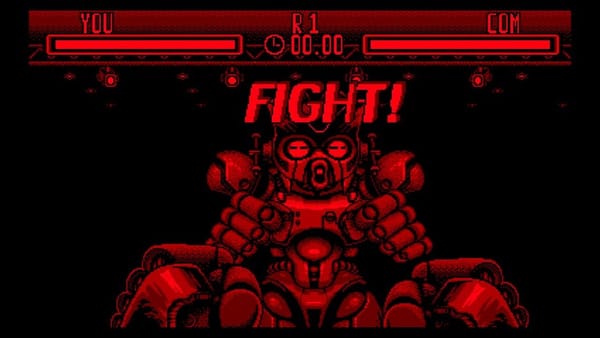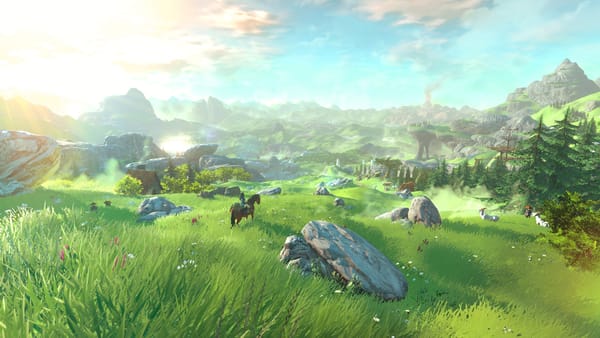#19: And if you *are* paying for the product... you're still the product
To Facebook, the web’s premier destination for ham-faced uncles and old school bullies who need somewhere to sell broken garden furniture and do racism. When Facebook bought Oculus in 2014, Mark Zuckerberg positioned VR as the social arena of the future, saying: “Mobile is the platform of today, and now we’re also getting ready for the platforms of tomorrow.” Fast forward seven years and that statement might, on first inspection, look to have been a bit of a false prophecy. Stick the word ‘advertising’ in there a couple of times, however, and it all starts to make sense. Facebook’s business model is based not on giving people a place to connect with each other, but on giving advertisers a way of connecting with them.
Now it is Oculus’ turn: in the coming weeks, Facebook is to begin testing in-app advertising in three games. The only one announced so far, Resolution Games’ VR shooter Blaston, simply displays ads as level furniture, but Facebook says it is also “exploring other ad formats that are unique to VR.” Impossible to read that without shivering, isn’t it.
The response to this hasn’t been as furious as you might expect — certainly nowhere near the furore that met similar recent endeavours in NBA 2K and UFC4 — though that’s understandable. I’m not sure anyone’s really paying that much attention. We’ve all got Facebook sussed by now, so it’s hardly surprising to see it doing something like this. And despite the huge advancements in technology and user experience made since Palmer Luckey Kickstarted his Gaffer-taped Rift prototype to such stellar effect in 2012, VR hasn’t really taken off as everyone predicted. Moreover, this is a very good week to bury bad news, with the collective games press willing the weekend to arrive as it solemnly chews its way through the post-not-E3 comedown.
Logically, we shouldn’t have that much of a problem with in-game advertising as a concept. There’s plenty of data to show that the model works. On mobile, in fact, it is not only the most lucrative method of monetisation, but is also the best received by players of mid- and hardcore games.
As a player of several of those games, I have to agree — with the important caveat that this style of advertising works because it gives the player something in return for their ad impression. In my beloved Puzzle & Dragons, you can watch an ad twice a day to refill your stamina bar; in the excellent Archero, you can watch an ad to get a stat bonus for the rest of the current dungeon. In the enjoyable, if off-puttingly titsy Seven Deadly Sins Grand Cross, you can get a free pull on a gacha machine. It’s a simple, and effective, transaction: the developer makes money without coercing the user to spend, while the player gets something useful that they would normally have to pay for.
When developers (okay, publishers, let’s be real here) put adverts in console games, however, there’s no reward for the viewer. To the extent that a positive case for advertising in this arena exists, it mostly centres on realism: adding to the sense of immersion in an open-world title with in-game billboards showing real-world brands, stuff like that. In that context, adverts in sports games should be an easy sell. You may pay your monthly or annual fee to watch the Premier League or NBA, but they still cut to ad breaks at half-time, plaster the pitchside hoardings with brand logos and so on. Still, we resist the notion of advertising in our sports games.
This is largely psychological, I think. Today’s console-game players are so weary of being nickel-and-dimed by games, well beyond the point of purchase, that they treat any new method of post-launch monetisation with tremendous suspicion and disdain, and it’s only a short hop from there to outrage. There is no sliding scale here, no room for logic or nuance: all of it feels bad, and on balance I both understand it and broadly agree.
Moreover, adverts in console games just feel that little bit harder to escape. At half-time in the football, you get up from your seat to grab another beer or a snack, stick the kettle on, let the dog out — maybe spend some quality time with the kids, if you’re weird. When the ad starts in a mobile game, you can just put your phone to one side for 30 seconds. But when you’re sitting in front of a TV screen, controller in hand, waiting to play a game, advertising feels that much more intrusive.
VR advertising takes that to a higher (lower?) plane. With your headset on you are not merely watching an ad but coexisting alongside it; not just enduring an advert for hot dogs or socks, but living it. That, of course, is precisely why Facebook is doing it, and was probably a significant factor in its desire to buy Oculus in the first place. Just lovely, inspiring stuff all round. What a world we’ve made for ourselves.
MORE!
- David Polfeldt is stepping down as managing director of Ubisoft Massive, and after a six-month sabbatical will return to Ubi in “a new strategic role”. David is a treasure, one of my favourite of all the people I’ve met in the industry — this quote about managing development teams is one of the best interview responses I’ve ever had — and is quite a loss for Massive. Equally, this could be a significant gain for Ubi more broadly when he comes back. All the best to him, either way.
- Not-E3 2021 featured a greater proportion of non-violent games than E3 2019, according to this GI.biz study. A predictable advantage of giving more of the spotlight to indies, yes, but nice to see all the same.
- Cyberpunk 2077 returns to PlayStation Store on Monday, albeit with a warning that base PS4 players are still in for a rough old time with it. There’s a big patch to celebrate.
- Hazelight’s co-op platform adventure It Takes Two has sold over two million copies. Deserved success for my favourite game of the year so far.
- This fan theory that a quietly announced indie horror game is part of an incredibly elaborate tease for Hideo Kojima’s new thing is almost certainly a load of old toss, but I am extremely here for it either way. Been a while since we’ve had a good stoner fever dream, isn’t it.
That’s it for a very busy week. Thanks to those of you who sent get-well-soon messages to the youngest yesterday; he’s over it and back to his best/worst. If you’ve enjoyed this, as per usual, please share it far and wide, sign up if you haven’t already — and, if you’d be so kind, consider a paid subscription. Oh god, this is advertising, isn’t it. Sorry. Have a great weekend.





